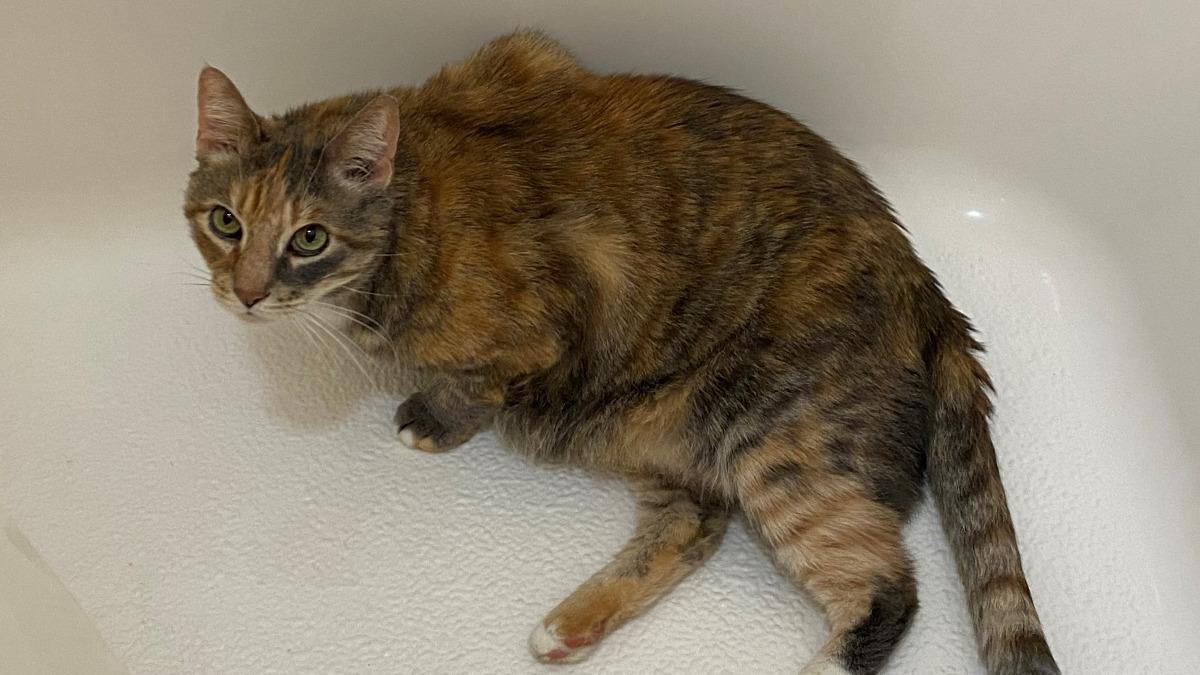Should I Bathe My Cat?

- posted: Jan. 09, 2021
Should I Bathe my Cat?
Most cats do not enjoy getting a bath. But why are our feline friends so resistant to bathing and how can you make bath time easier for your cat if he or she does need a clean-up? Let’s find out more.
Many cats like drinking water from a dripping faucet or fountain, but these same cats may panic and grow extra legs and claws when you try to lather them up in the tub for a bath. Why are cats so resistant to bathing?
First, cats are dry-weather creatures preferring arid climates so they are often just not used to water. Cats may also feel weighed down by a wet coat, a feeling that is unpleasant to them.
Cats also may have had a bad experience with water, especially if they slipped and fell into a bathtub or toilet. While they can swim, they generally don’t like to be submerged in water and if they were surprised by falling into the water or being ambushed for a bath, they may be anxious about water. Kitties don’t like to lose control. Licking water from a faucet happens on the cat’s terms. Being held down in a basin of water with shampoo all over them, not so much.
Do cats need baths? Most cats do a good job keeping their coats cleaned, so routine bathing is typically not necessary. However, if your kitty gets something on his fur or has a medical issue like a skin infection or diarrhea, he may need a bath. Sometimes, cats live in households with people who are allergic to them so routine bathing may be in the cards to reduce allergens for the humans who care for them.
If your cat does need a bath, here are some tips to make the process a little easier. Have everything ready by the sink or tub where you are bathing your cat—towels, shampoo, etc.—so you don’t need to reach for something or leave the room to get supplies. Next, use a towel or non-slip mat in the bottom of the tub or sink so your kitty doesn’t slip. The sensation of sliding or losing footing will make your cat anxious. Make sure she has firm footing. Use cool or lukewarm water—not too hot. Cats and dogs have more sensitive skin than people so very warm or hot water is uncomfortable to them. You also don’t want to submerge your cat in water. Fill the basin with just a few inches or, just wet your cat with a handheld shower sprayer or gently pour some water over your cat. Don’t wet the cat’s head. You can wipe his head and face with a damp washcloth if needed. Apply shampoo, gently lather your cat’s body, then rinse with the shower or sink sprayer or pour clean water over your cat to rinse. Dry your kitty with towels. You could also dry your cat’s coat with a hair dryer on a low or no heat setting, but some cats may panic with the noise of the dryer so stop if your kitty seems too stressed. You could also apply a small amount of coat conditioner to help comb out tangles or brush your cat after the bath when dry to remove any remaining loose hair and comb out tangles. If your cat has large or tight mats, he or she may need a professional grooming or a shave with an electric shaver. Use extreme caution with scissors! You don’t want to accidentally cut your cat’s skin.
Luckily, cats don’t need routine bathing, but, if your cat does need a bath, hopefully, these tips will keep your kitty as comfortable as possible.
This blog brought to you by the Patton Veterinary Hospital serving Red Lion, York and the surrounding communities.
Location
Patton Veterinary Hospital
425 E Broadway
Red Lion, PA 17356
